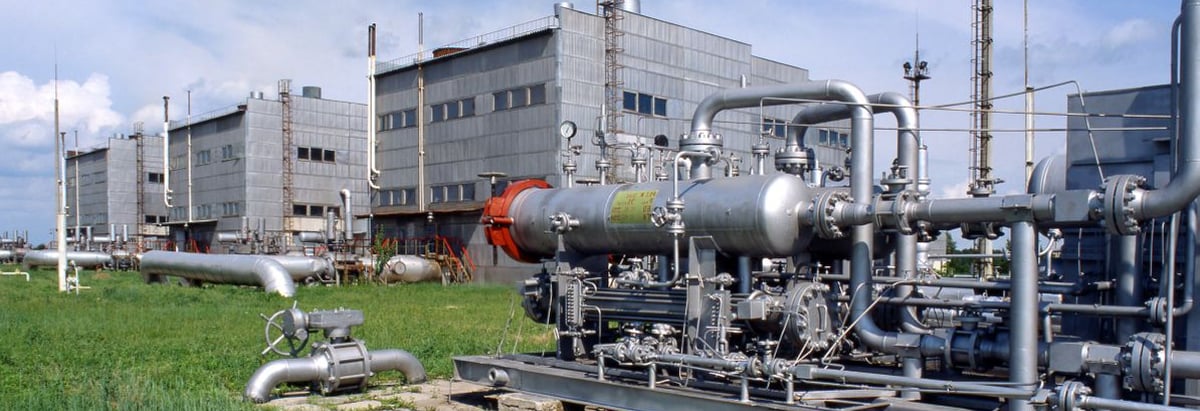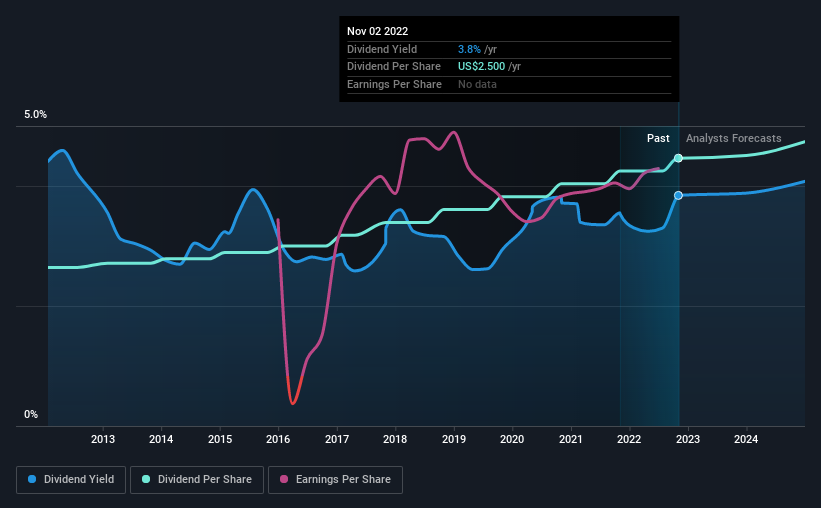
The board of Black Hills Corporation (NYSE:BKH) has announced that it will be paying its dividend of $0.625 on the 1st of December, an increased payment from last year's comparable dividend. The payment will take the dividend yield to 3.8%, which is in line with the average for the industry.
Check out the opportunities and risks within the US Integrated Utilities industry.
Black Hills' Payment Has Solid Earnings Coverage
We like a dividend to be consistent over the long term, so checking whether it is sustainable is important. Based on the last payment, Black Hills' earnings were much higher than the dividend, but it wasn't converting those earnings into cash flow. No cash flows could definitely make returning cash to shareholders difficult, or at least mean the balance sheet will come under pressure.
The next year is set to see EPS grow by 11.3%. Assuming the dividend continues along recent trends, we think the payout ratio could be 56% by next year, which is in a pretty sustainable range.

Black Hills Has A Solid Track Record
The company has an extended history of paying stable dividends. The dividend has gone from an annual total of $1.48 in 2012 to the most recent total annual payment of $2.50. This works out to be a compound annual growth rate (CAGR) of approximately 5.4% a year over that time. Companies like this can be very valuable over the long term, if the decent rate of growth can be maintained.
The Dividend's Growth Prospects Are Limited
Some investors will be chomping at the bit to buy some of the company's stock based on its dividend history. Although it's important to note that Black Hills' earnings per share has basically not grown from where it was five years ago, which could erode the purchasing power of the dividend over time. Growth of 1.8% may indicate that the company has limited investment opportunity so it is returning its earnings to shareholders instead. This isn't necessarily bad, but we wouldn't expect rapid dividend growth in the future.
In Summary
Overall, we always like to see the dividend being raised, but we don't think Black Hills will make a great income stock. While Black Hills is earning enough to cover the payments, the cash flows are lacking. We would probably look elsewhere for an income investment.
Investors generally tend to favour companies with a consistent, stable dividend policy as opposed to those operating an irregular one. Still, investors need to consider a host of other factors, apart from dividend payments, when analysing a company. Just as an example, we've come across 3 warning signs for Black Hills you should be aware of, and 1 of them is potentially serious. If you are a dividend investor, you might also want to look at our curated list of high yield dividend stocks.
Valuation is complex, but we're here to simplify it.
Discover if Black Hills might be undervalued or overvalued with our detailed analysis, featuring fair value estimates, potential risks, dividends, insider trades, and its financial condition.
Access Free AnalysisHave feedback on this article? Concerned about the content? Get in touch with us directly. Alternatively, email editorial-team (at) simplywallst.com.
This article by Simply Wall St is general in nature. We provide commentary based on historical data and analyst forecasts only using an unbiased methodology and our articles are not intended to be financial advice. It does not constitute a recommendation to buy or sell any stock, and does not take account of your objectives, or your financial situation. We aim to bring you long-term focused analysis driven by fundamental data. Note that our analysis may not factor in the latest price-sensitive company announcements or qualitative material. Simply Wall St has no position in any stocks mentioned.
About NYSE:BKH
Black Hills
Through its subsidiaries, operates as an electric and natural gas utility company in the United States.
Undervalued average dividend payer.


